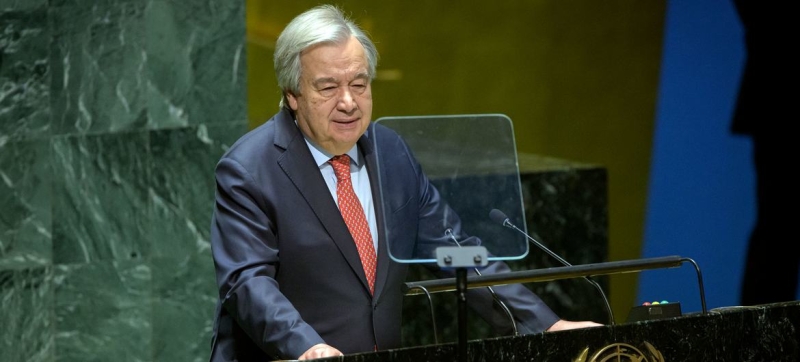
The head of the UN at the opening of the 68th session of the Commission on the Status of Women. “Discrimination against women dates back millennia”: UN chief calls for fighting patriarchy Women
Women and girls around the world suffer from wars waged by men. This statement was made by UN Chief Antonio Guterres on March 11 at the opening of the 68th session of the Commission on the Status of Women in New York.
Women in conflict
“In Afghanistan, the Taliban issued more than 50 decrees, suppressing the rights of women and girls. In Sudan, dozens of women have reportedly been subjected to rape and other forms of sexual violence during the ongoing conflict,” the Secretary-General said.
He recalled the report of the UN Special Representative on Sexual Violence in Conflict, Pramila Patten, which documented cases of sexual violence and torture against women and girls during the Hamas attack on Israel October 7th.
There is also evidence of sexual violence against Palestinian women in places of detention, during house searches and at checkpoints in the Occupied Palestinian Territory, the Secretary-General noted. He also recalled that more than two thirds of the civilians killed in Gaza were women and children.
Women are effective peacemakers
« Meanwhile, despite evidence that women’s full participation makes peacebuilding more effective, the number of women participating in decision-making is actually declining. Women were absent from negotiations to end conflicts in Ethiopia, Sudan, Myanmar and Libya,” Guterres said.
He emphasized that country authorities should set goals for involving women in peacebuilding and formulate appropriate budget and investment policies.
Attack on Women’s Rights
Despite the enormous progress that has been made in advancing women’s rights, patriarchy is far from defeated, the UN chief said. Moreover, Guterres noted, he is regaining his position: autocrats and populists are attacking women’s rights, including their sexual and reproductive rights. They promote what they call “traditional” values.
“Patriarchy is truly an age-old tradition. Discrimination against women dates back thousands of years. We don’t want him to come back,” Guterres said.
“We cannot accept a world in which grandmothers are afraid that their granddaughters will have fewer rights than them,” he added.
Gender discrimination and artificial intelligence
The technology sector is still dominated by men, the Secretary General recalled. There is ample evidence that systems designed by men include biased algorithms that ignore the needs and rights of women.
“Algorithms driven by men could literally program inequalities into everything from urban planning to credit ratings to medical imaging for years to come,” the Secretary General said. He stressed that biased algorithms can also harm men and boys.
“It’s time for governments, civil society and the Silicon Valleys of the world to join forces to close the digital gender divide and ensuring women’s participation in digital decision-making at all levels,” said Guterres.
Economic inequality
The UN chief also recalled that women are more likely than men to face poverty: their access to land, natural resources and financial assets is limited.
The International Labor Organization estimates that women worldwide earn just 51 cents for every dollar earned by men.
At the same time, more than 80 percent of finance ministers and more than 90 percent of central bank governors are men.
“Women-dominated sectors of the economy are undervalued, underpaid, and in some cases not even paid. Women’s invisible domestic labor is a subsidy to the entire economy,” Guterres said.
“Meanwhile, violence, which is an integral part of the lives of many women, can fuel a vicious circle: poverty increases the risk of violence, and violence increases the risk of poverty. This is simply unacceptable,” the UN chief said.
Governments must recognize the critical economic role of unpaid care work and implement policies that support both mothers and fathers in their attempts to find paid work outside the home, Guterres said .
“Policies are required that promote the full economic participation and empowerment of women through decent employment, training, skills development, accessible public services and social protection,” – said the UN chief.
